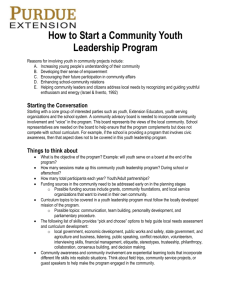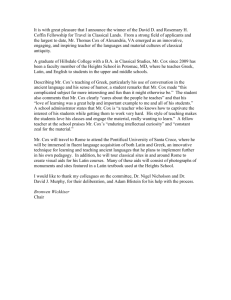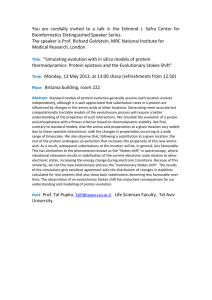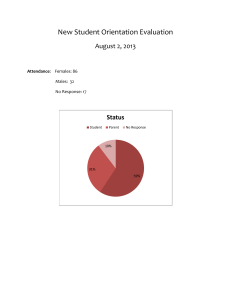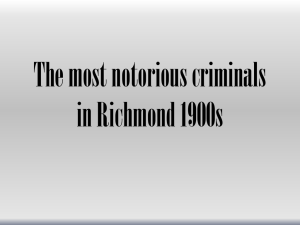American Foreign Policy Since World War II Instructor: Asst
advertisement
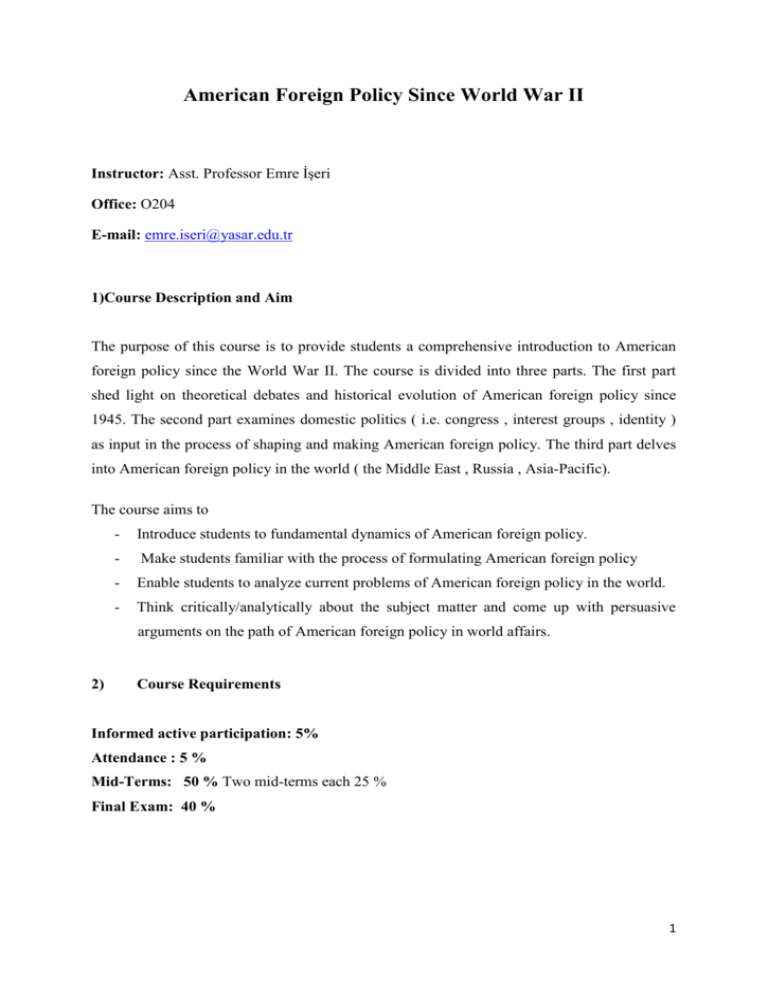
American Foreign Policy Since World War II Instructor: Asst. Professor Emre İşeri Office: O204 E-mail: emre.iseri@yasar.edu.tr 1)Course Description and Aim The purpose of this course is to provide students a comprehensive introduction to American foreign policy since the World War II. The course is divided into three parts. The first part shed light on theoretical debates and historical evolution of American foreign policy since 1945. The second part examines domestic politics ( i.e. congress , interest groups , identity ) as input in the process of shaping and making American foreign policy. The third part delves into American foreign policy in the world ( the Middle East , Russia , Asia-Pacific). The course aims to - Introduce students to fundamental dynamics of American foreign policy. - Make students familiar with the process of formulating American foreign policy - Enable students to analyze current problems of American foreign policy in the world. - Think critically/analytically about the subject matter and come up with persuasive arguments on the path of American foreign policy in world affairs. 2) Course Requirements Informed active participation: 5% Attendance : 5 % Mid-Terms: 50 % Two mid-terms each 25 % Final Exam: 40 % 1 A: Outstanding performance during the course. [Superb performance in assignments, full attendance, and the indication of the having done all the assigned readings.] BA : Excellent performance during the course. BB: Very good performance during the course. CB: Good performance during the course. CC: More than adequate performance during the course. DC: Varying degrees of acceptable performance during the course. D : These grades imply less than adequate performance but they will enable the student to pass the course. F: Less than minimally acceptable performance during the course. 3) Sources Along with several classic journal articles on American foreign policy assigned each week, below you can find books that will guide you through the course. Required : Michael Cox & Doug Stokes , US Foreign Policy , New York : OUP, 2008. photocopy Recommended : Steven W.Hook & John Spainer, American Foreign Policy Since World War II , Washington : CQ Press , 2010. ) photocopy Recommended Books in Turkish: Maxime Lefebvre, Amerikan Dış Politikası, Istanbul : Iletişim Yayınları , 2005. photocopy Gerard Dorel, Amerikan Imparatorluğunu Atlası , Istanbul : NTV , 2007. Recommend websites: Foreign Policy Magazine , http://www.foreignpolicy.com/ Council on Foreign Relations , http://www.cfr.org/ The National Interest Magazine , http://nationalinterest.org/ The Nation , http://www.thenation.com/ 2 SEMESTER OUTLINE PART I – Theoretical/Historical Account Week 1 ( Week of September 23) Meeting Introduction Theories of US Foreign Policy American exceptionalism Required reading: Cox & Stokes, pp.1-23. Recommended reading : Hook & Spanier, pp.1-20. Cox & Stokes,pp.24-42. Recommended Video: Think Back: America and Isolationism Week 2 ( Week of September 30) – Continued Week 3 ( Week of October 7) – American Foreign Policy during the Cold War Required Reading : Cox & Stokes, pp.63-87 Recommended Readings : Melvyn P. Leffler, "The American Conception of National Security and the Beginnings of the Cold War, 1945-48." The American Historical Review 89.2 (1984): 346-381. G. John Ikenberry, "Rethinking the origins of American hegemony." Political Science Quarterly 104.3 (1989): 375-400. Week 4 ( Week of October 14) – No Class 3 Week 5 ( Week of October 21) - Continued & American Foreign Policy in the Post-Cold War Required Reading : Cox & Stokes, pp.88-104. Recommended Readings : Charles Krauthammer, “ The Unipolar Momet Revisited.” National Interest No. 70 (2002/2003) : 5-17. Christopher Layne, "The unipolar illusion revisited: The coming end of the United States' unipolar moment." International security 31.2 (2006): 7-41. Week 6 ( Week of October 28) – First MID-TERM PART II – Domestic Determinants Week 7 ( Week of November 4) – The foreign policy process : executive, congress , intelligence Required readings: Cox & Stokes, pp.107-128. 4 Recommended readings: Alexander L. George, "Domestic constraints on regime change in US foreign policy: The need for policy legitimacy." Ole Holsti , et.al, (ed.) Change in the international system (1980): 233-262. Michael Mastanduno, "The United States Political System and International Leadership: A “Decidedly Inferior” Form of Government?." American Foreign Policy: Theoretical Essays (2005): 248-267. Recommended Video: Think Back: Limits of Presidential Power Week 8 ( Week of November 11) – Regional/Public/Group Interests and US Foreign Policy Required readings: Cox & Stokes, pp.145-162. Recommended : Lawrence R Jacobs,., and Benjamin I. Page. "Who Influences U. S. Foreign Policy?." American Political Science Review 99.1 (2005): 107-123. Thomas Knecht and M. Stephen Weatherford. "Public opinion and foreign policy: The stages of presidential decision making." International Studies Quarterly 50.3 (2006): 705-727. Week 9 ( Week of November 18)– Identities and US Foreign Policy Required Reading : Cox & Stokes, pp.183-210. Recommended readings : Cox & Stokes,pp.164-182. Dirk Nabers,. "Filling the void of meaning: Identity construction in US foreign policy after September 11, 2001." Foreign Policy Analysis 5.2 (2009): 191-214. Week 10 ( Week of November 28) – Second MID-TERM 5 PART III – THE US AND THE WORLD Week 11 ( Week of December 2) – US Foreign Policy in the Middle East Required reading : Cox & Stokes, pp.213-235. Recommended reading : John J Mearsheimer and Stephen M. Walt. "The Israel lobby and US foreign policy." Middle East Policy 13.3 (2006): 29-87. Fawaz A. Gerges,. "The Obama approach to the Middle East: the end of America's moment?" International Affairs 89.2 (2013): 299-323. Recommended Videos: "The Israel Lobby and U.S. Middle East Policy after Arab Spring" (youtube) “ Blood and Oil - A Declaration of Dependence “ ( youtube) Week 12 ( Week of December 9) – US Foreign Policy in Russia Required reading: Cox & Stokes, pp.257-274. Recommended readings : Kramer, David J. "Resetting US–Russian relations: it takes two." The Washington Quarterly 33.1 (2010): 61-79. Deyermond, Ruth. "The Republican challenge to Obama's Russia policy." Survival 54.5 (2012): 67-92. Week 13 ( Week of December 16) – US foreign policy in Asia-Pacific Required reading: Cox & Stokes, pp.276-291. Recommended reading : Zbigniew Brzezinski,. "Balancing the East, Upgrading the West: US Grand Strategy in an age of upheaval." Foreign Aff. 91 (2012). David Scott,. "US Strategy in the Pacific–Geopolitical Positioning for the Twenty-First Century." Geopolitics 17.3 (2012): 607-628. Recommended Video: Henry Kissinger on the fall of the USA rise of China ( youtube) 6 China Threat Debate: John J. Mearsheimer ( youtube) Week 14 ( Week of December 23) - The Future of US Foreign Policy Required reading: Cox & Stokes, pp.433-450. Recommended readings : Fareed Zakaria,. "Future of American Power-How America Can Survive the Rise of the Rest, The." Foreign Aff. 87 (2008). Joseph S Nye Jr,. "Futures of American Power-Dominance and Decline in Perspective, The." Foreign Aff. 89 (2010). Week 15 ( Week of December 30 ) – No Class Week 16 ( Week of January 6) - Review before the Final 7
